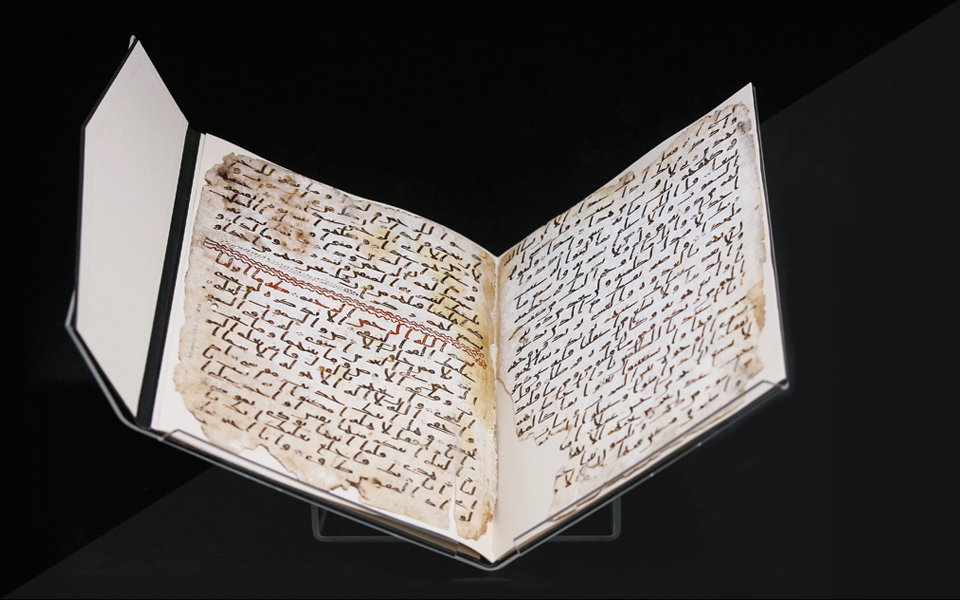One of the oldest Qur’ans in the world – the Birmingham Qu’ran – whose verses, many believe, have been inscribed an acquaintance of the Prophet Muhammad, will be exhibited by Sharjah at this year’s Sharjah International Book Fair in November to mark the UK/UAE 2017 Year of Cultural Collaboration. A digital version of the work will be on display. The work got its name after it caught the attention of a PhD student at Birmingham University who found it among the university’s collection of Middle Eastern books and documents, and conducted a detailed study of its many fragments to later reveal the age and significance of the text.
For many years the precious ‘Birmingham Qur’ran’ fragments had been bound alongside leaves of a similar Qur’an manuscript in the Mingana Collection, thought to date from the late seventh century. But a PhD research student, Dr Alba Fedeli, identified the script as Hijazi, one of the earliest Arabic scripts, and that led the university to carbon date the fragments.
The author used a reed pen dipped in brown pigment to write on parchment made from shorn off sheep skin treated with an alkali solution and left to dry. Tests carried out by the Oxford University Radiocarbon Accelerator Unit has revealed that the probability that these fragments of text date back to between 568 and 645 is higher than 95 per cent. From the handwriting, they deduced the text’s origins in the Hejaz area comprising sacred cities of Mecca and Medina, west of Arabian Peninsula.
David Thomas, Professor of Christianity and Islam at Birmingham University, said: “[The fragments] could well take us back to within a few years of the actual founding of Islam. According to Muslim tradition, the Prophet’s revelations that formed the basis for the Qur’an were had between the years 610 and 632 – the year of his death.
“The person who wrote it could well have known Prophet Muhammad. He could have seen him and maybe even heard him preach. He may have known him personally – and that is quite a thought to conjure with.”
The exhibition will also take visitors on the manuscript’s journey to Birmingham, and an interactive digital reproduction of the Birmingham Qur’an will be the centrepiece. Screens will show parts of surahs (verses) 18 to 20 as the fragments are old and delicate, and cannot be exhibited.
The manuscripts are part of the Mingana Collection of more than 3,000 Middle Eastern documents gathered in the 1920s by Alphonse Mingana, a Catholic priest born in the ancient kingdom of Chaldea in what is now modern-day Iraq. After settling in the UK, Mingana made several trips to the Middle East to collect ancient Syriac and Arabic manuscripts, financed by Dr Edward Cadbury, the owner of the famous Cadbury chocolate factory in Bournville, Birmingham.
Cadbury named the collection after its first curator and today, the University of Birmingham’s Mingana Collection has manuscripts representing more than 20 languages and spanning a period of 4,000 years.
Historians have been captivated. It is extraordinary to think that the person who made these brushstrokes may have heard the Prophet Muhammad preach. The reaction of Muhammad Afzal, Chairman of Birmingham Central Mosque, demonstrates how these ancient fragments have reached a hand across the years. “When I saw these pages I was very moved,” he said. “There were tears of joy and emotion in my eyes…”







